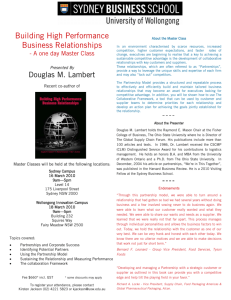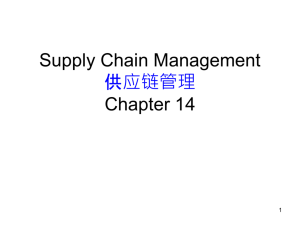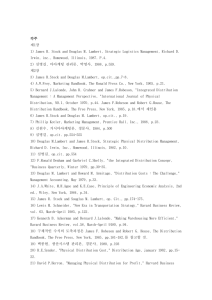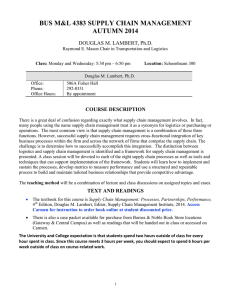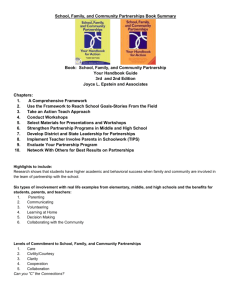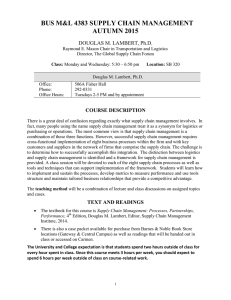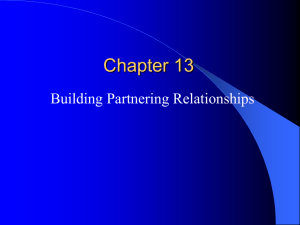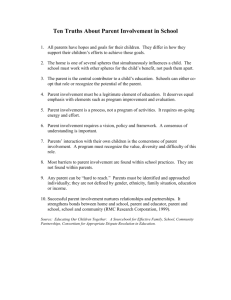The Partnership Model here
advertisement
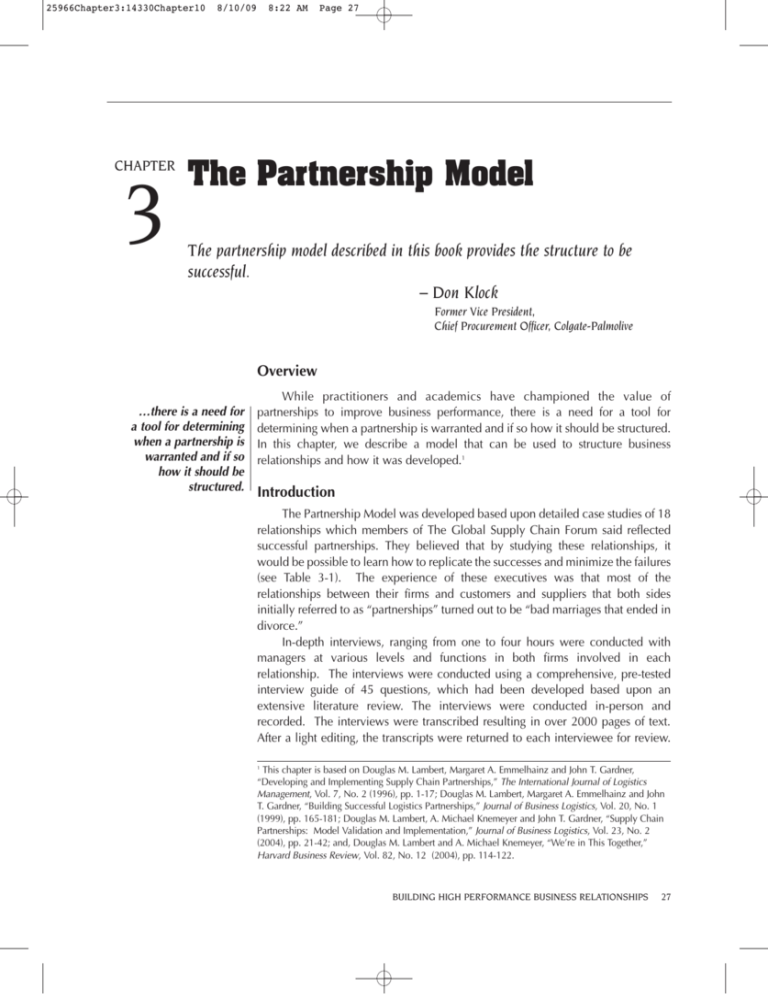
25966Chapter3:14330Chapter10 CHAPTER 3 8/10/09 8:22 AM Page 27 The Partnership Model The partnership model described in this book provides the structure to be successful. – Don Klock Former Vice President, Chief Procurement Officer, Colgate-Palmolive Overview …there is a need for a tool for determining when a partnership is warranted and if so how it should be structured. While practitioners and academics have championed the value of partnerships to improve business performance, there is a need for a tool for determining when a partnership is warranted and if so how it should be structured. In this chapter, we describe a model that can be used to structure business relationships and how it was developed.1 Introduction The Partnership Model was developed based upon detailed case studies of 18 relationships which members of The Global Supply Chain Forum said reflected successful partnerships. They believed that by studying these relationships, it would be possible to learn how to replicate the successes and minimize the failures (see Table 3-1). The experience of these executives was that most of the relationships between their firms and customers and suppliers that both sides initially referred to as “partnerships” turned out to be “bad marriages that ended in divorce.” In-depth interviews, ranging from one to four hours were conducted with managers at various levels and functions in both firms involved in each relationship. The interviews were conducted using a comprehensive, pre-tested interview guide of 45 questions, which had been developed based upon an extensive literature review. The interviews were conducted in-person and recorded. The interviews were transcribed resulting in over 2000 pages of text. After a light editing, the transcripts were returned to each interviewee for review. This chapter is based on Douglas M. Lambert, Margaret A. Emmelhainz and John T. Gardner, “Developing and Implementing Supply Chain Partnerships,” The International Journal of Logistics Management, Vol. 7, No. 2 (1996), pp. 1-17; Douglas M. Lambert, Margaret A. Emmelhainz and John T. Gardner, “Building Successful Logistics Partnerships,” Journal of Business Logistics, Vol. 20, No. 1 (1999), pp. 165-181; Douglas M. Lambert, A. Michael Knemeyer and John T. Gardner, “Supply Chain Partnerships: Model Validation and Implementation,” Journal of Business Logistics, Vol. 23, No. 2 (2004), pp. 21-42; and, Douglas M. Lambert and A. Michael Knemeyer, “We’re in This Together,” Harvard Business Review, Vol. 82, No. 12 (2004), pp. 114-122. 1 BUILDING HIGH PERFORMANCE BUSINESS RELATIONSHIPS 27
